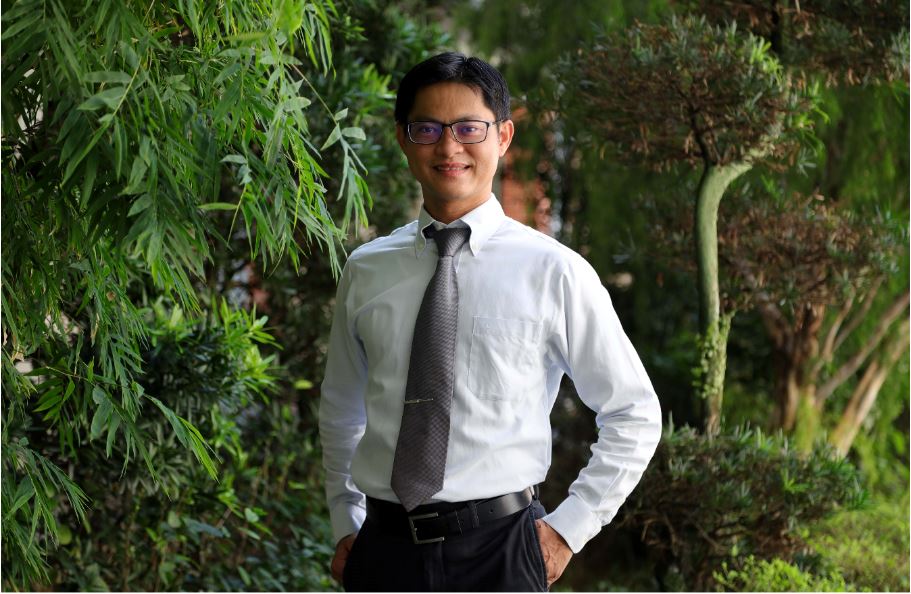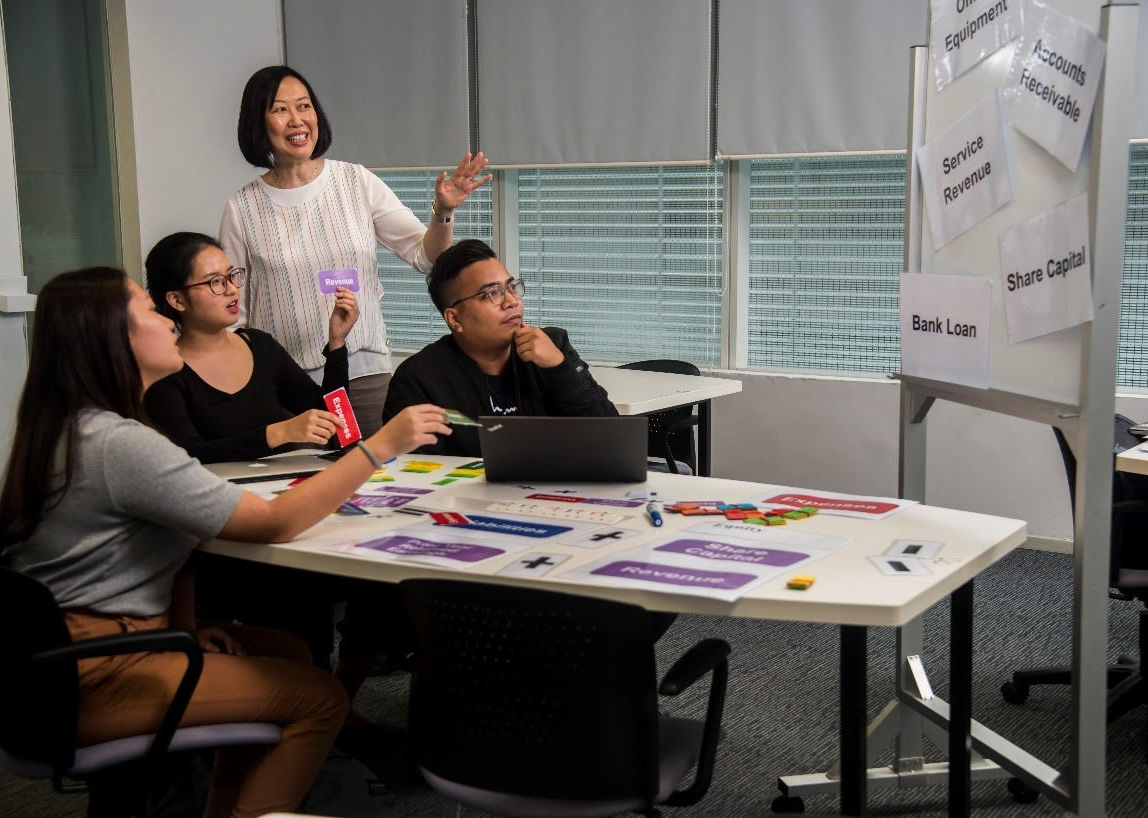Have you asked your phone a question out loud, and received a coherent reply? Watched an online video with text and charts swooshing across the screen? Or been wowed by an energy-efficient building?
The world is changing, and so are the jobs and skills that make these innovations possible.
To keep pace with the developments in the industry, polytechnics are constantly reviewing their courses, says Christopher Goh, Deputy Director of Industry Partnerships at Singapore Polytechnic. “We get feedback from the advisory committee, which includes business leaders; from the professional contacts of lecturers; and from the supervisors of our students, when they go out for internships.”
Here are some cool new (and not so new) poly courses that have been set up with an eye to the future.
The Job: The Builder of ‘Cool’ Cities
The Course: Diploma in Sustainable Built Environment, Republic Polytechnic
As Singapore aims to lower its carbon footprint and fight climate change, low-energy buildings are the new standard.
So, how does painting a building make it more energy-efficient? What is the best way to monitor the temperature of a building? These are some of the issues addressed in the Building Information Modelling (BIM) course.
As Dr Lieu Chee Fui, the programme chair of this course at Republic Polytechnic explains: “In traditional 3D modelling, a wall is just a rectangle. In BIM, you will also see the layers that make the wall, the material of those layers, and their thermal properties.”
When you have a good digital model of a building, architects, builders, electricians, plumbers and facility managers—who typically work on a building in a piecemeal fashion—are also able to integrate their efforts seamlessly.
The Sustainable Built Environment course is a new one, developed in response to the government’s Construction Industry Transformation Map. It will have its first intake this year.
The Job: Creator of Virtual Worlds
The Course: Diploma in Game Design & Development, Temasek Polytechnic
Augmented reality (AR) got its big moment in with the hit mobile game Pokémon GO. The game inserted its characters in real-world environments to the tune of over a billion downloads across the world.
It’s also used in a variety of other settings, from visualising interiors to trying out makeup to Google Maps, which can superimpose directions on your phone’s camera view.
The Temasek Polytechnic course is not new, but has evolved to include AR and virtual reality. Initially called Diploma in Game & Entertainment Technology, it got its current name in 2014.
“We did this to communicate that students were going beyond creating games for entertainment, to games for learning, training, and simulation for a wide range of industries,” says Dr Nalaka Edirisinghe, Deputy Director, Academic & Student Development.
In 2017, a team of students developed a training simulation for medical emergencies. They used AR to overlay emotional responses on mannequins, such as pain and confusion, making the learning experience more immersive and realistic.
The Job: The Maker of Thinking Machines
The Course: Diploma in Applied Artificial Intelligence, Temasek Polytechnic
Artificial intelligence, or AI, is at the heart of many emerging technologies—from driverless cars to smart homes, which automatically adjust lighting, temperature and other settings to suit their occupants. It has even been used by health authorities around the world to predict the spread of COVID-19.
In 2018, tech giant Amazon introduced its new Amazon Go stores, which rely on AI to allow customers to pick up whatever they want and walk straight out, charging their credit cards automatically. Last year, local convenience store Cheers opened its first unmanned outlet in Tampines, using similar technology.
“Many industry sectors are looking at innovating their business practices and enhancing their productivity through the adoption of AI applications,” says Dr Edirisinghe. “There is growing demand for professionals with the competencies to help businesses and organisations infuse and adopt AI in their organisations.”
TP’s Diploma in Applied Artificial Intelligence will have its first intake in 2021.
The Job: The Drone Designer
The Course: Diploma in Aeronautical Engineering, Singapore Polytechnic
You could say that drone technology is, well, really taking off. Today, drones are used for tasks as diverse as deliveries, photography, news coverage, and weather monitoring.
Singapore Polytechnic’s aeronautical engineering course gives its students the kind of know-how that could be used to design these machines. The programme itself is not new, having been launched in 2002, but it is regularly updated. “We recognise the latest industry trends such as 3D printing, advanced materials and data analytics. We incorporate these into our curriculum. They are relevant to all aircraft, including drones,” says course chair Mr Chua Ming Sing.
In 2016, the programme got a massive leg up with the completion of a 4,660 square-metre Aero Hub right on campus, complete with aircraft and flight simulators. Industry partners ST Engineering Aerospace and ACRATS also have training facilities there, giving students direct exposure to the work they may undertake in the future.
The Job: The One-Stop-Shop Creative
The Course: Diploma in Media, Arts and Design, Singapore Polytechnic
You’d be forgiven for thinking that “content producer” is just a fancy name for a YouTuber. But as Christopher Goh, who also teaches in SP’s School of Media, Arts and Design explains, “the creative industries are so intertwined these days that it’s not enough for anyone to just be an animator, or actor, or scriptwriter.”
He adds: “Someone who trains social workers through role-play can’t just be adept at drama. They also need to know how to operate video equipment to capture the sessions for learning and review.”
Another example he cites are students of his who are also musicians. Most of them lost income last year due to COVID-related restrictions on live performances. “They lost jobs in one area, but because they knew how to handle audio, they could pivot to doing post-production work for digital media,” he says.
With this in mind, the school decided to merge all its eight previous diploma courses into one diploma course with eight specialisations. Students explore different disciplines in the media, arts and design industries before they pick one skill to specialise in.
It was not a decision taken lightly. The school reached out to creative agencies, video production houses, interactive marketing agencies, and even recruitment consultants. The response—a resounding endorsement of an integrated, cross-disciplinary diploma programme.
The Diploma in Media, Arts and Design launches this year.





.jpg)
